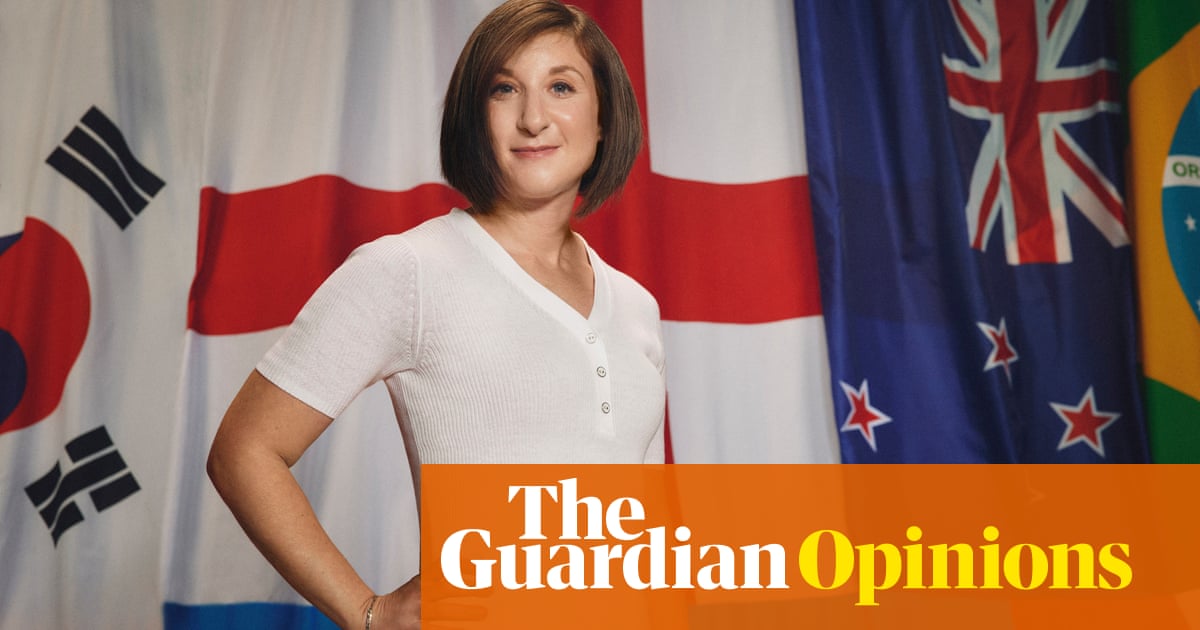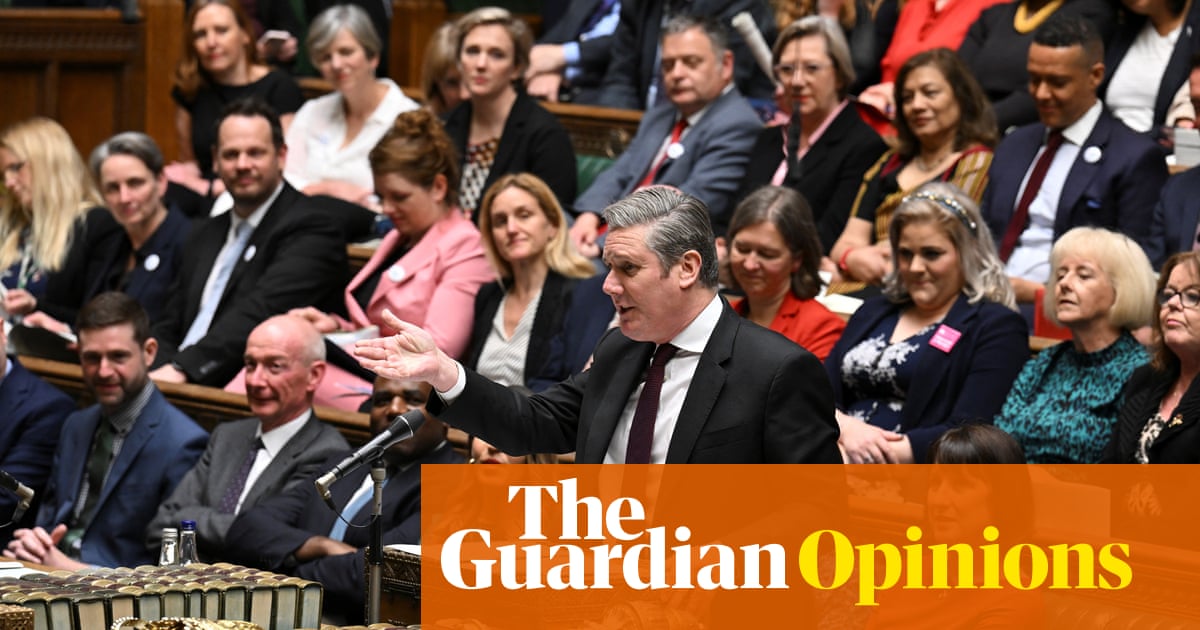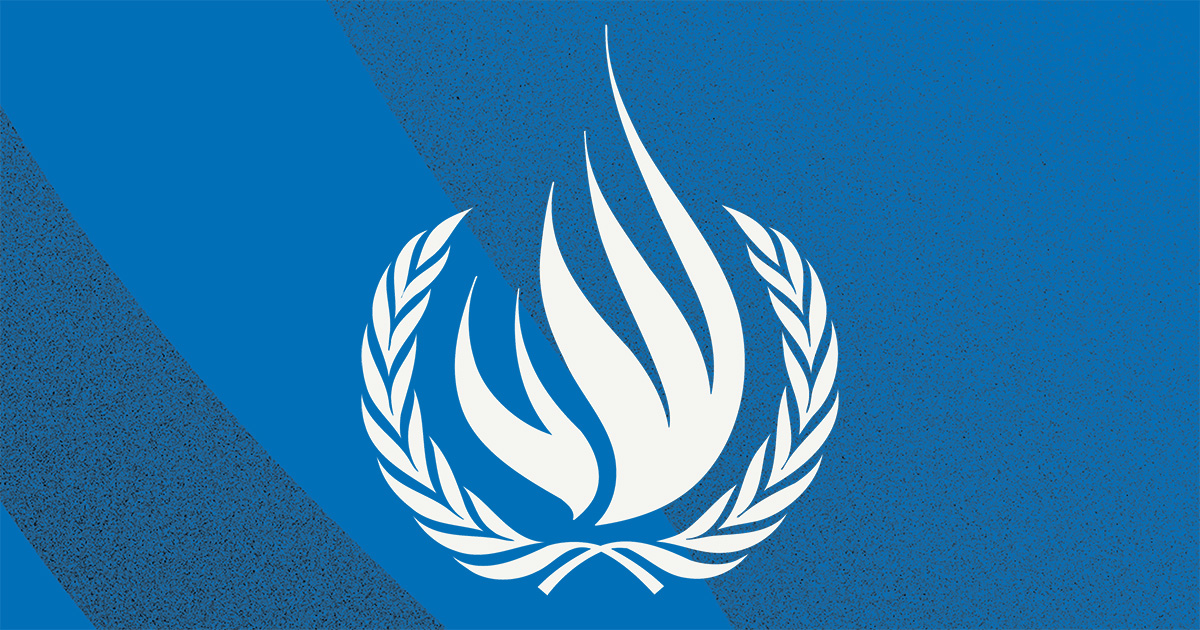
peaking on a video call from his makeshift home studio in Buckinghamshire, Iain Lee praises the skills of his broadcasting partner Katherine Boyle – although he is unsure whether she can hear him as her camera flickers on and off and her microphone emits an ominous crackling sound. “Katherine is one of the most talented people I’ve ever worked with. She’s also really crap at technology,” he jokes. Her face pops back into focus momentarily, before her phone falls over with a clatter and her portion of the screen goes blank once more. “Jesus!” he exclaims, before adding: “Now I can see why you were just a co-host.”
Lee is not sincerely slamming Boyle, but instead mocking a crushing conversation the pair say they had with a boss at TalkRadio, where they hosted The Late Night Alternative With Iain Lee for four years before it was suddenly axed at the start of June, to the dismay of its modest but devoted audience.
Boyle presented and produced the show, but the duo had long been concerned about not being on an even footing in terms of billing and pay. (Lee says Boyle was paid roughly £300 less per show than him, and just under £100 less when standing in as host). According to Lee, when he suggested to an unnamed male executive that Boyle be paid the same for a New Year’s Eve special last year, he was dismissed with the words: “Why would I do that? She’s just a co-host.”
“She was sat there next to us!” Lee cries, indignantly. For Boyle, it was explicit confirmation of something she had suspected throughout her career: that, as a woman in broadcasting, she was not viewed as an equal to her male counterparts. “I always knew I had to work my arse off and maybe be better than the blokes in order to get the same, while secretly thinking: maybe I’m just not as good. But he said it out loud.” (A TalkRadio spokesperson said: “Iain and Katherine are both very talented professionals. The show was branded and marketed as The Late Night Alternative With Iain Lee. Katherine was an extremely important part of creating the show but she was employed as a freelance producer and she appeared on air in this capacity. From time to time, when she did present the show, she was paid a rate to reflect the change in role.”)
Perhaps it is unsurprising, then, that when the live-streaming platform Twitch offered Lee a new home for the show, Boyle quit TalkRadio to join him. At Twitch, they are being paid the same and have equal status as hosts. While we don’t get into exact figures, Lee says he has taken a pay cut. “It’s significantly less than I was earning, but it’s enough,” he says.
It is a brave venture for both. They are among the first professional broadcasters to join the platform and, while their nimble and interactive phone-in show seems made for streaming, Twitch remains a radical departure from radio.
Still, they have form when it comes to being experimental. The Late Night Alternative shunned the belligerent Brexit debates with which commercial speech radio is associated in favour of what Boyle calls a “safe space”. While neither knows why it was cancelled, Lee suspects its unique take as a leftwing slot on a right-leaning station had something to do with it. “Katherine and I stuck out like a sore thumb,” he says.
They are keen to stress the positives of their time at TalkRadio, but they are clearly focused on the future. Twitch, which was bought by Amazon for almost $1bn in 2014, started out as a video game channel, but is fast becoming a platform for all kinds of content, with more than 4 million people streaming videos each month. Much of its output is from everyday folk broadcasting humdrum activities – scroll through the app on your phone and you will find everything from oddly mesmerising videos of women walking their dogs to haphazard cooking demonstrations – but amid this are more formal talkshows, podcasts and gigs. Lee thinks the platform’s mainstream use is about to explode: “I’ve had a few radio people get in touch saying: ‘Tell me about this Twitch thing, what’s going on?’”
How will Twitch change the show? In a way, it won’t. The duo are adamant that it will retain its award-winning blend of silliness and sensitivity, as well as keeping the phone-in element at its core. But being on video will, obviously, introduce a visual element, something Lee reckons will enhance the show’s jovial side. “In a test run last week, I played a game with a caller: how deep can we make our voices go? It was silly and it was dumb and people got to see me standing up and gurning.” While they are quietly confident that their loyal following will migrate to the platform, they are hoping to gain new listeners thanks to Twitch’s international reach.
There is a tremendous sense of freedom, too. “All that bollocks about not being treated the same because I’m not ‘the name’, all that stuff is gone,” says Boyle. She is sick of attention-grabbing antics being valued more than diligence. “I’ve often said jokingly to Iain that if I’d gone on Big Brother and taken all of my clothes off I’d be much further on in my career than by doing all my homework and trying to prove on merit than I am worth the rise.” Lee agrees. “Radio is a really white, middle-aged, male stomping ground both on air and off air. If you’re a member of the BAME community you stand hardly a chance unless you’re doing a specialist show, and if you’re a woman you’re generally the sidekick to the ‘funny man’.”
The pair’s ease in discussing the often fraught topics of money and privilege may come from the fact that they have worked together for almost a decade: they met when Lee joined BBC Three Counties Radio in 2012. Boyle was a reporter, newsreader and presenter; Lee, who has subsequently been a contestant on I’m a Celebrity … Get Me Out of Here, joined after stints at LBC, Absolute Radio and Channel 4.
After lengthy cajoling from Lee, Boyle agreed to produce his show and they discovered how well they work as a team – along with their shared broadcasting values. Being pitched (and turning down) guests at the BBC such as Tommy Robinson prompted them to reject outrage-courting culture. “We were worried that we were giving people legitimacy who didn’t deserve it,” says Boyle.
How did they feel, then, when Nigel Farage – arguably the king of outrage courting – left LBC in June after he compared Black Lives Matter protesters to the Taliban? “It’s great he’s not on the radio, because he’s a poisonous twat who’s ruined this country,” says Lee. “But I think it’s too late.” Agitators such as Farage have already paved the way, he says, for acts that are “nudging the line of acceptability” and are “based primarily on meanness”.
Conversely, The Late Night Alternative’s watchword is “nice” – although it is shot through with a healthy portion of irreverence. This matches Boyle and Lee’s dynamic. While the pair tease one another – Lee with exuberant gags, Boyle with acidic put-downs – they are evidently close. Lee calls Boyle his best friend – a claim Boyle backs up, albeit in pandemic parlance, by explaining they are in a support bubble. They live just under an hour away from each other, her in Bedfordshire, him in Aylesbury, and their families see each other a couple of times a week.
In a recent tweet, Lee said he was considering a career change. Even with Twitch on the horizon? Yes. “I’m going back to college in September. I want to become a counsellor.” He plans on doing the new show alongside studying.
This is partly a response to difficult exchanges that have taken place on The Late Night Alternative. In December 2018, Lee – who has discussed his mental health struggles, including suicidal thoughts – kept a caller who had taken an overdose on the line until an ambulance found him. (The episode was named Moment of the Year at the Arias in March.) “Every time I’ve helped someone, I’ve come away thinking maybe I could have done more, because all I’m going on is my own experience. I want to formalise it and get trained.”
Boyle, on the other hand, is done with planning for the future. “I’m finding that having an open mind and being ready to say yes to stuff seems to be the way forward, so I’m going to try that for a bit and see what happens.”
That said, they could make it big at Twitch, Lee suggests, a roguish smile creeping on to his face as he jokingly compares them to Ninja, a former Twitch gamer who made colossal sums from the site’s viewer donations and channel subscriptions. “If we become millionaires, you can forget everything I’ve just said. I’ll be sticking around.”












